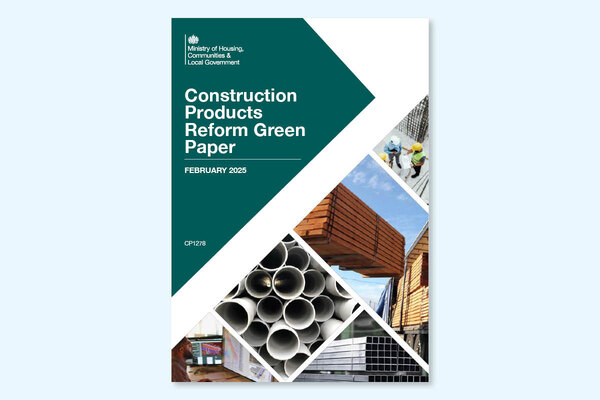Protections for private renters must be central to the government’s Warm Homes Plan
We must make sure that the incentives for private landlords to upgrade their rented homes are actually benefitting the tenants, writes Parissa Zand, research and policy manager at Generation Rent
In my last rented shared house, I had to wear gloves indoors when I worked from home. My bedroom curtains would sway in the breeze while the windows were shut, the walls were barely holding together and our energy bills were eye-watering.
Sadly, my experience is not unusual. For private renters all over the UK, cold and drafty homes are all too common. In England and Wales alone, there are 2.6 million private rented homes which fall below the minimum energy efficiency standard of Energy Performance Certificate (EPC) Band C.
Therefore, it shouldn’t come as a surprise that over 1.1 million private rented households, amounting to almost a quarter of renters, live in fuel poverty, the highest rate of any tenure.
This is primarily because successive governments have failed to address fuel poverty among renters. Since 2010, fuel poverty has fallen by only 4% for private renters, compared to 35% among owner-occupiers and 54% among council tenants.
Through its Warm Homes Plan, the government has committed to mandating EPC Band C by 2030 for privately rented homes. Energy minister Miatta Fahnbulleh said “the idea at the heart of our Warm Homes Plan is a simple one – all families deserve the security of a home they can afford to heat”.
This is welcome, but with 2.6 million private rented homes currently falling below the minimum energy efficiency standard of EPC Band C in England and Wales alone, there is a long road ahead for renters.
“The bulk of policy debate has centred on increasing landlord incentives to drive demand, while the role of tenants in retrofit has been overlooked”
Despite the complex challenge of upgrading millions of rented homes, the key to urgently boosting energy efficiency standards in the private rented sector is hiding in plain sight.
Currently, the bulk of policy debate has centred on increasing landlord incentives to drive demand, while the role of tenants in retrofit has been overlooked. To improve the energy efficiency of rented homes, renters must be incentivised to support these upgrades as well.
ECO grants are available for landlords with low-income tenants, to target public funds at rented households more likely to be living in fuel poverty. Strangely, these grants do not provide any guarantee of the benefits of retrofit works flowing to the low-income tenants, who must live through the renovations.
There is nothing currently stopping a landlord from either evicting that tenant to sell their improved property, or demanding a rent increase that captures the entire benefit of the grant.
I recently heard a story of a family renting privately where the landlord had substantial energy efficiency upgrades installed through a government grant. But once the upgrades were complete, the landlord hiked up the rent by £500 a month, meaning the family faced a massive shortfall between their housing benefit and the rent, which ultimately led to their eviction.
Even with the Renters’ Rights Bill banning Section 21 evictions in England, this will be possible under the ‘landlord need’ eviction grounds, which includes sale and the landlord or a relative moving in, while the bill has very little protections against rent hikes.
“Renters must be protected from ‘landlord need’ eviction for six years after retrofit works are delivered, so they can enjoy the full intended benefits of the grant in energy bill savings”
When public money is flowing unfettered into the pockets of private landlords, it’s no wonder that there is low uptake of retrofit grants in the private rented sector. Owner-occupiers have received five times as many ECO grants (70% of the total) as private renters (14%), despite there being similar numbers of fuel-poor households in each tenure. Generation Rent’s analysis estimates that, if ECO grants had been allocated in proportion to the scale of fuel poverty in each sector, an additional 482,000 private renter homes would have been retrofitted.
Renters must be protected from ‘landlord need’ eviction for six years after retrofit works are delivered, so they can enjoy the full intended benefits of the grant in energy bill savings. Rents must be protected from increases as a consequence of grant-funded improvements at the First Tier Tribunal. Meanwhile, local authorities must also be funded to conduct proactive enforcement to guard against non-compliance and ensure upgrades are delivered to a high standard.
The fact is, landlords will be making choices about homes they are not living in. It’s not rocket science that renters must be centred in policymaking that seeks to improve the energy efficiency of rented homes.
Renters have been donning gloves, beanies and thick sweaters in their homes for long enough. Without the certainty of fair treatment throughout the process of retrofitting millions of homes, momentum on mass upgrades will run cold.
Parissa Zand, research and policy manager, Generation Rent
Sign up to the Warm and Safe Homes Summit 2025
Join more than 500 sector leaders responsible for retrofitting and improving the quality of homes – spanning asset management, building safety, sustainability, tenant engagement, procurement, governance and compliance.
The Warm and Safe Homes Summit (previously called the Retrofit and Strategic Asset Management Summit) offers a crucial opportunity for you to build collaborations and partnerships, driving progress toward healthy, safe and energy-efficient homes for tenants and residents.













